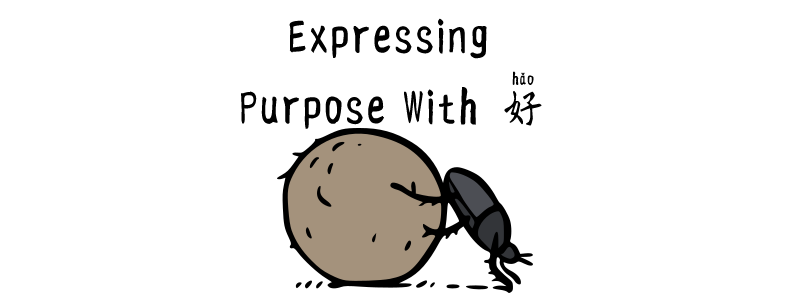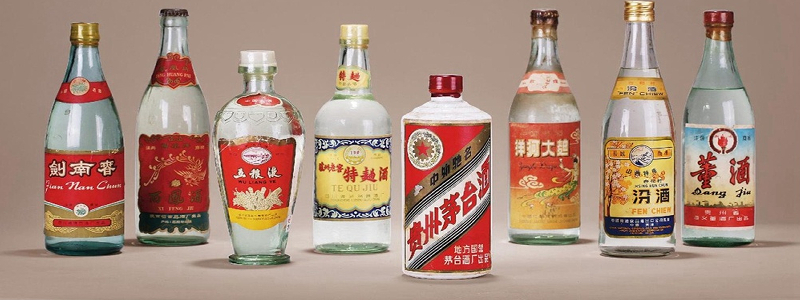Grammar Point:The Chinese word 倒是 dàoshì can be used in a way that shifts focus or redirects attention in a conversation. This function is particularly useful when the speaker wants to introduce a new topic, perspective, or contrast that may not be directly related to the previous point, but still relevant. Structure Topic 1 + 倒是 dàoshì…
Author: tiffany
Showing Contrast – 倒是 dàoshì 2
Grammar Point:The function of 倒是 dàoshì in Chinese is to highlight a contrast, particularly when the second idea is unexpected or goes against what you might assume. It emphasizes a surprising or contrary situation based on the first condition. Structure Statement 1,S + 倒是 dàoshì + Statement 2 The first statement often implies an expectation…
“Indeed” in Chinese 3 – 倒是 dàoshì
Grammar Point:When 倒是 dàoshì is roughly translated as “indeed” in English, it’s used to emphasize or draw attention to a specific point in agreement. It highlights a particular detail or aspect of a situation, often to show support or alignment with an idea. Structure S + 倒是 dàoshì + Emphasis,Comment 他tā說shuō的de倒是dàoshì有yǒu道理dàolǐ, 這次zhècì就jiù聽tīng他tā的de吧ba他tā说shuō的de倒是dàoshì有yǒu道理dàolǐ, 这次zhècì就jiù听tīng他tā的de吧baHe does make a good…
“Even” in Chinese 2 – lián… yě…
Grammar Point:In Chinese, the structure 連连 lián …也 yě/ 都 dōu… is used to emphasize “even,” highlighting something unexpected or extreme. Structure 連连 lián + N + 也 yě/ 都 dōu + V 連lián小孩xiǎohái也yě知道zhīdào连lián小孩xiǎohái也yě知道zhīdàoEven children know. 連lián一yì杯bēi水shuǐ也yě沒有méiyǒu连lián一yì杯bēi水shuǐ也yě没有méiyǒuThere isn’t even a glass of water. 他tā連lián早餐zǎocān都dōu沒méi吃chī就jiù去qù上班shàngbān了le他tā连lián早餐zǎocān都dōu没méi吃chī就jiù去qù上班shàngbān了leHe went to work without even having breakfast. 這zhè部bù電影diànyǐng連lián我wǒ奶奶nǎinǎi也yě喜歡xǐhuān看kàn这zhè部bù电影diànyǐng连lián我wǒ奶奶nǎinǎi也yě喜欢xǐhuan看kànEven my grandmother likes this…
“Even If” in Chinese 2 – 不 bù… 也 yě…
Grammar Point:The 不 bù…也 yě… structure in Chinese is used to express that even if something is not happening, another action or behavior is still being carried out. It highlights persistence or priority given to a certain action despite not doing something else. Structure 不 bù + Verb + 也 yě + Verb It’s also common to…
Expressing Purpose With 好 hǎo
Grammar Point:In Chinese, the character 好 hǎo can be used to express purpose or intention when it’s placed before a verb or verb phrase, often translating to “in order to” or “so that.” This usage of 好 hǎo shows that an action is done for a specific reason or goal. Structure Action + 好 hǎo + Purpose 我wǒ把bǎ鬧鐘nàozhōng調tiáo早zǎo一點yìdiǎn, 好hǎo有yǒu時間shíjiān吃chī早餐zǎocān我wǒ把bǎ闹钟nàozhōng调tiáo早zǎo一点yìdiǎn,…
Western Breakfast in Chinese
Ever found yourself craving pancakes or eggs Benedict in China but didn’t know how to ask for it? This quick guide will teach you the essential phrases to order your favorite Western breakfast in Chinese! 蛋類蛋类 Egg Dishes 太陽蛋tàiyángdàn太阳蛋tàiyángdàn – Sunny-side up eggs 荷包蛋hébāodàn煎鸡蛋jiānjīdàn – Fried eggs 炒蛋chǎodàn炒蛋chǎodàn – Scrambled eggs 水波蛋shuǐbōdàn水波蛋shuǐbōdàn – Poached eggs…
Drinking Culture in Chinese
Beyond “Cheers!” – Your Guide to Drinking Culture in Chinese Ever wondered how to talk about alcohol in Chinese? Whether you’re planning a business dinner in Shanghai or a night out in Taipei, understanding drinking culture in Chinese-speaking regions can be your secret weapon for better connections and memorable experiences. Alcohol Vocabulary If you’re curious…
Chinese Recipe – Snowflake Cake
雪花糕 xuěhuāgāo Snowflake Cake is a delicate Chinese dessert known for its soft, snow-like appearance. Popular in Southern China and Hong Kong, it dates back to the Qing Dynasty (1644-1912), when it first appeared in Guangdong’s teahouses as a dim sum treat. With its light texture and simple ingredients, Snowflake Cake offers a refreshing contrast…
“Even If” in Chinese 1 – 哪怕 nǎpà
Grammar Point:The Chinese phrase 哪怕 nǎpà is used to mean “even if” or “even though” and often expresses that something will happen or be true despite a particular condition. It’s commonly used to emphasize determination or resilience, regardless of difficult or unfavorable circumstances. Structure 哪怕 nǎpà + condition, 也 yě/還还 hái + outcome or result…






